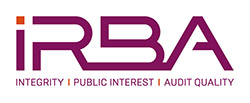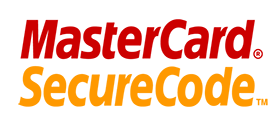The IRBA issues its Public Inspections Report for 2015
Johannesburg/ 3 December 2015
The IRBA's latest Public Inspections Report 2014/2015: Striving for Consistent, Sustainable High Audit Quality acknowledges that audit quality requires improvement, following inspections performed over the past financial year. The IRBA Inspection Committee reported on 37 audit firm and 375 audit engagement inspections for the year. Most firms showed one or more deficiencies including ethics (independence), engagement performance and monitoring that require urgent improvement. A significant number of individual audit engagement files also showed deficiencies. A total of 16% of firms and 6% of engagement partners were referred to the Investigating Committee of the IRBA due to fundamental or continued noncompliance with international auditing and financial reporting standards, professional codes and legislative requirements. The report emphasises the need for audit firms to urgently address ethics and independence matters, as well as engagement quality.
Caution should be applied in extrapolating the inspection results across the entire audit population. The IRBA adopted a risk-based inspection methodology which is biased towards higher-risk audit areas and specific risk indicators. This means that any deficiency in these areas could potentially create risks to the public if not appropriately responded to by the auditor. The risk-based approach also assists the IRBA to focus on those identified areas where deficiencies are likely. An assessment that an audit is unsatisfactory does not necessarily mean that an inappropriate audit opinion was expressed, that the financial statements were misstated, or that there has been misconduct on the part of the firm or registered auditor.
As part of its commitment to promote auditors to achieve and maintain consistent sustainable high levels of audit quality and produce reliable audit reports on financial information, the IRBA implemented the recommendations from the 2013 World Bank Report on the Observance of Standards and Codes: Auditing and Accounting (ROSC) that were adopted by the Minister of Finance. These recommendations are aimed at improving the inspection processes to be more robust and include among others, implementing a risk-based approach and strengthening financial statement reviews.
The IRBA has now gone a step further in its inspection procedures and implemented a Remedial Action Process that is aimed at assisting those firms and practitioners who have shown deficiencies in their firm's quality control policies and procedures or audit files. During this process, the IRBA remains aware of its independence. The Remedial Action Process is part of the IRBA's commitment to promote consistent sustainable high audit quality by ensuring that audit firms and practitioners promptly address the root causes of significant inspection deficiencies that have been raised during an inspection. Through this more formal process, practitioners and firms are required to submit a root cause analysis and an action plan on how they will address reported deficiencies and improve their audit quality. In addition, they have to submit a written undertaking that acknowledges that they will address all significant audit quality deficiencies that were reported to them.
This process can be highly effective and yield the necessary improvements needed, but only if leadership at the firms buys into the remediation process in a constructive manner and then develops and implements appropriate remedial plans and strategies.
The IRBA's aim is to encourage appropriate corrective action by communicating and engaging more with affected firms and practitioners, providing them with an opportunity for the best possible outcome during their re-inspection. Those firms that identified the root causes and implemented appropriate remedial action plans were found more likely to be satisfactory upon re-inspection.
High-quality auditing and accounting are not only essential for reliable financial reporting, but are also critical in protecting the public interest and boosting investor confidence. In fact, compliance with auditing standards, ethics, financial reporting standards and legislative requirements is fundamental in ensuring a reliable profession that can effectively compete internationally.
To some extent, the role that the IRBA plays in, not only regulating the industry, but also constantly improving the standards, is the reason South Africa was ranked first in the world out of 140 countries for the strength of its auditing and reporting standards for six consecutive years, in the World Economic Forum's Global Competitiveness Report 2014-2015 rankings.
However, complacency could easily erode all the gains that have been attained. As such, the IRBA is committed to engage other role players in the financial sector ‒ including other regulators, audit firms, audit committees, internal auditors, specialists, consultants and management ‒ to appreciate the importance of their respective roles in achieving and maintaining consistent sustainable high levels of audit quality, although the primary responsibility remains with the auditor. The IRBA also agreed to strengthen collaboration with SAICA to engage more with auditors through available SAICA structures and forums.
The auditing profession is one of the few professions which are inspected on a regular basis. Inspections and regulation are not only critical to ensure that the highest standards are maintained in a profession, but also to provide the public and investors with the confidence that they can rely on the work of auditors. Confidence stimulates investment, and investment creates employment and growth.





